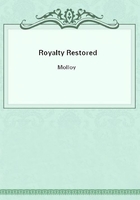
第120章 CHAPTER XX.(3)
As may be expected, disputes, frequently ending in duels, continually arose betwixt those who gambled. Although the king had, on his restoration, issued a proclamation against this common practice, threatening such as engaged in it with displeasure, declaring them incapable of holding any office in his service, and forbidding them to appear at court, yet but little attention was paid his words, and duels continually took place, Though most frequently resorted to as a means of avenging outraged honour, they were occasionally the result of misunderstanding. A pathetic story is told of a fatal encounter, caused by a trifle light as air, which took place in the year 1667 at Covent Garden, between Sir Henry Bellasis and Tom Porter --the same witty soul who wrote a play called "The Villain," which was performed at the Duke's Theatre, and described as "a pleasant tragedy."These worthy gentlemen and loyal friends loved each other exceedingly. One fatal day, both were bidden to dine with Sir Robert Carr, at whose table it was known all men drank freely;and having feasted, they two talked apart, when bluff Sir Henry, giving words of counsel to honest Tom, from force of earnestness spoke louder than his wont. Marvelling at this, some of those standing apart said to each other, "Are they quarrelling, that they talk so high?" overhearing which the baronet replied in a merry tone, "No, I would have you know I never quarrel but Istrike; and take that as a rule of mine." At these words Tom Porter, being anxious, after the manner of those who have drunk deep, to apprehend offence in speech of friend or foe, cried out he would like to see the man in England that durst give him a blow. Accepting this as a challenge, Sir Henry dealt him a stroke on the ear, which the other would have returned in anger but that they were speedily parted.
And presently Tom Porter, leaving the house full of resentment for the injury he had received, and of resolution to avenge it, met Mr. Dryden the poet, to whom he recounted the story. He concluded by requesting he might have his boy to bring him word which way Sir Henry Bellasis would drive, for fight he would that night, otherwise he felt sure they should be friends in the morning, and the blow would rest upon him. Dryden complying with his request, Tom Porter, still inflamed by fury, went to a neighbouring coffee-house, when presently word arrived Sir Harry's coach was coming that way. On this Tom Porter rushed out, stopped the horses, and bade the baronet alight. "Why,"said the man, who but an hour before had been his best friend, "you will not hurt me in coming out, will you?" "No," answered the other shortly. Sir Henry then descended, and both drew their swords. Tom Porter asked him if he were ready, and hearing he was, they fought desperately, till of a sudden a sharp cry was heard; Sir Henry's weapon fell upon the ground, and he placed one hand to his side, from which blood flowed freely. Then calling his opponent to him, he looked in his face reproachfully, kissed him lovingly, and bade him seek safety. "For, Tom," said he, struggling hard to speak, "thou hast hurt me; but I will make shift to stand upon my legs till thou mayest withdraw, and the world not take notice of you, for," continued he, with much tenderness, "I would not have thee troubled for what thou hast done." And the little crowd who had gathered around carried him to his coach and twenty days later they followed him to his grave.
Throughout this merry reign, many fantastic changes took place in the costumes of courtiers and their followers. At the restoration, the dress most common to women of all ranks consisted of a gown with a laced stomacher and starched neckerchief, a sad-coloured cloak with a French hood, and a high-crowned hat. Such habiliments, admitting of little variety and less ornament, found no favour in the eyes of those who returned from foreign courts with the king, and therefore a change was gradually effected. The simple gown of wool and cotton gave place to loose and flowing draperies of silk and satin; the stiff neckerchief was removed to display fair shoulders and voluptuous breasts; the hat was bedecked by feathers of rare plumage and rich colour; the cloaks changed hues from sad to gay; the hoods being of "yellow bird's eye," and other bright tints. Indeed, the prodigal manner in which ladies of quality now exposed their bosoms, though pleasing to the court, became a matter of grave censure to worthy men. One of these in a pamphlet, entitled "AJust and Seasonable Reprehension of Naked Breasts and Shoulders,"charges women of fashion with "overlacing their gown bodies, and so thrusting up their breasts in order that they might show them half-naked." It was not only at balls and in chambers of entertainment, he avowed, they appeared in this manner, but likewise at church, where their dress was "not only immodest, but sometimes impudent and lascivious;" for they braved all dangers to have the satisfaction of being seen, and the consolation of giving pleasure.